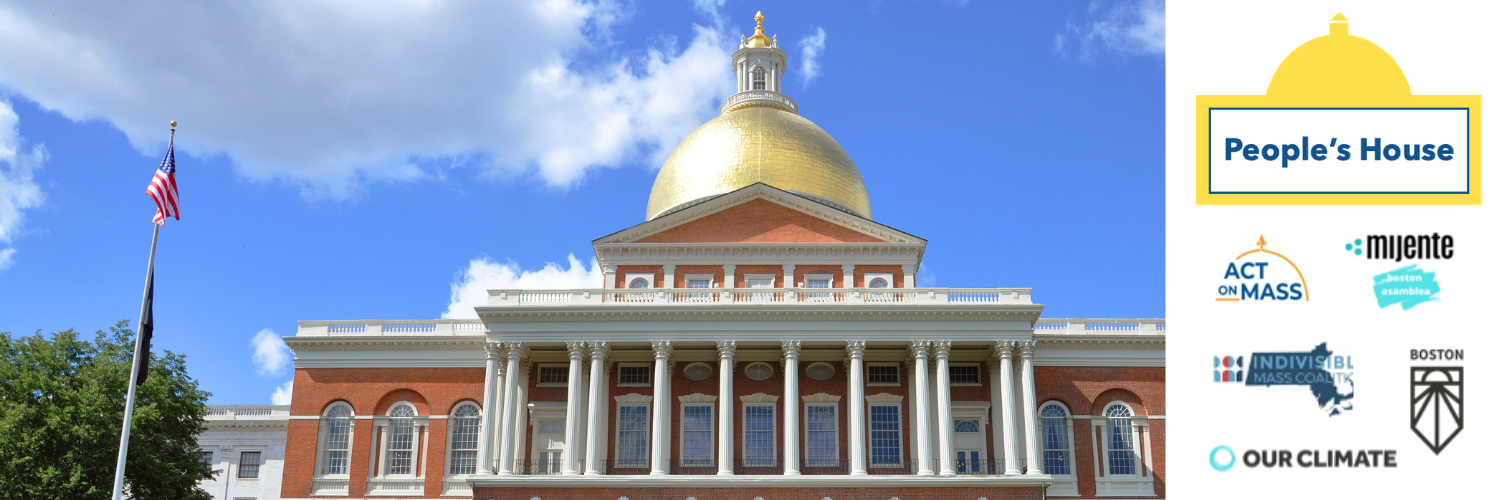
You know what they say: April showers bring May flowers. And in the Massachusetts Legislature, April hearings bring May budgets (although I must admit, it isn’t nearly as catchy).
House Ways & Means is currently working on their version of Baker’s annual budget, which will likely be released in the next few weeks. Unlike years past where constituents had opportunities to publicly testify, Ways & Means quietly eliminated the public testimony portion of the budget hearings over the last few weeks. Constituents could only submit only written testimony about what they believe should be included in the biggest bill of the session.
Committee hearings where advocates are able to testify publicly, and en masse, are a crucial venue for public pressure and effective activism. The House didn’t explain why they eliminated the option to testify at hearings, although I'd be very interested in what they would have to say.
State House Scoop
Lyft and Uber bring their anti-worker battle to the legislatureWhen big corporations want to pass legislation in states, and do so quickly, they use a time-tested strategy: threaten to run a ballot question backed by nearly endless money, or negotiate a compromise position with the legislature. This dynamic is currently playing out in Massachusetts with the Lyft and Uber-backed effort to classify their drivers as contractors, denying them the protections and benefits of full employees.
Representatives of the group pushing for the anti-worker measure testified before the legislature this week, claiming that their legislation was in the best interest of their drivers. (Corporations always spend $18 million to pass legislation out of the kindness of their hearts.) With the referendum currently poised to be on November ballots, it’s unclear whether the legislature will decide to make concessions or leave it to the ballot box.
Commission releases report on “Future of Work” in Massachusetts
Work from home and hybrid work are here to stay, according to the report released on Tuesday. This will have ripple effects throughout the state in terms of transportation, childcare, eldercare, and housing. The report also found that women and minority groups in particular face increasing hurdles to employment in the wake of Covid-19.
House passes funding for road repair, doesn’t change outdated formula
On Wednesday the House passed a total of $350 million in funding for road and bridge repairs. $200 million of the funds is through “Chapter 90” – a program through which the state can allocate transportation funding to cities and towns. The problem with Chapter 90: its funding formula has not been updated in 50 years. This old formula means rural areas with low populations get the short end of the stick. Plus, experts say $200 million isn’t nearly enough: “If Chapter 90 remains at $200 million for fiscal 2023, the real (inflation-adjusted) level of state support for local road projects would drop by 42.6% percent” since 2012.
Massachusetts Commission on LGBTQ Youth holds rally on State House steps
In honor of Trans Day of Visibility, the Massachusetts Commission on LGBTQ Youth rallied on the State House steps on Thursday in solidarity with trans and non-binary youth in states where anti-LGBTQ legislation has been passed. Key speakers included legislative leaders and the Executive Director of Boston Alliance of LGBTQ+ Youth Grace Sterling Stowell. The commission also called on the MA State House to pass a bill that provides a gender-neutral option on state documents and identification (H3126).
--
Take Action
Sign the petition in support of a gender-neutral option on state documents!
An Act Providing for a Gender Neutral Designation on State Documents and Identifications (H3126) has already passed the Senate, and needs to clear the House in order to become law. Sign here to help get this bill across the finish line:
--
Join our Weekend of Action for our ballot question initiative!

This week, we announced our 34 Priority Districts for our ballot question campaign to give people a voice on public committee votes! We’ll be asking voters in key districts — leadership, contested races, and underrepresented communities — if they want to instruct their State Rep to make all committee votes public.
Here’s how to get involved:
- Sign Up: Fill out this form to be looped into all things ballot question.
- Share: Share the campaign flyer with your network — send it to your neighbors, friends, groups and organizations and spread the word to get more people involved
- Weekend of Action: Sign up for our Weekend of Action on April 30th and May 1st for our signature gathering extravaganza! Only the first three campaigns to return their signatures will get a spot on the ballot, so the first weekend is critical.
- Start your own district team: Even if your district isn’t on the priority list, we still have all the tools and support you need to get this question on your ballot too! Fill out this form and let us know if you’re interested in starting your own district team.
SIGN UP FOR THE WEEKEND OF ACTION >>
And last, a not-so-fun-fact to kick off your weekend
In theory, joint committees have a massive and critical role in the legislative process: they review bills after being filed, meet in executive session to deliberate on and redraft bills, and ultimately vote on which bills to advance to the next step. Unfortunately, none of this actually happens in Massachusetts. Other than the public hearings (where legislators don’t meaningfully participate and often don’t attend), committees do not meet to discuss their bills. Instead of holding executive sessions, committee chairs are in charge of redrafts and conduct informal votes via email – a key loophole that allows them to avoid having to make their votes public.
--
That’s it for this week! Enjoy these fickle early days of spring.
